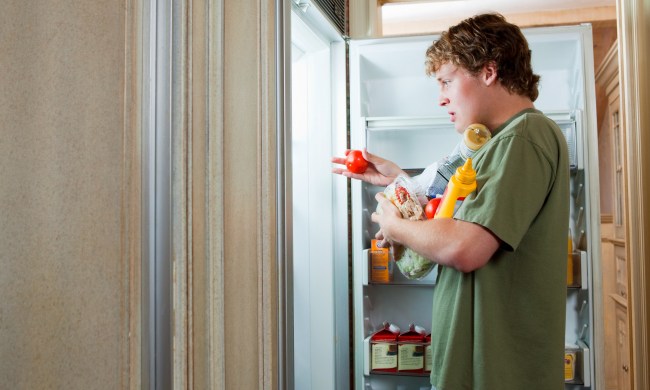Is your home a cacophony of huffing, heavy sighs, and slamming doors? If so, you are probably the parent of a tween or teen. Teenage appreciation can be challenging. Tweens and teens are notorious for rolling their eyes and being too cool to hang out with their parents. After all, they’re at an age where they’re expressing their independence, which is a good thing. However, you’ll want to stick to your guns to avoid falling into common teen parenting pitfalls. Here’s how you can avoid doing just that.
Teenage appreciation
While your tween or teen is navigating hormonal changes, puberty, and the social pressures of middle and high school, you are caught in the crosshairs trying to deal with ever-changing moods, fashion trends, and your kid’s desire for independence.
You can come out these trying years unscathed, or at least only mildly traumatized, but it does take some work. Sometimes we may unintentionally make the situation worse. Here are seven things to avoid with your tween.

Not setting boundaries
Are you worried about being a cool parent? Relaxing rules around the house may seem like a good strategy to ease the constant battles with your tween, but becoming too lax with your expectations could do more harm than good. Being a parent sometimes means being uncool.
Kids, even while teenagers, need structure and routine. The consistency you set can help them stay grounded. Set boundaries for your relationship with your teen and stay consistent by frequently checking in with whether or not you are keeping yourself and your teen accountable.
Trying to control everything
On the flip side, you do not want to dictate every bit of your child’s behavior. The teen years are all about identity exploration. If your kid does not have the opportunity to exercise control, he may become overly rebellious or may struggle to make decisions later on.
Choose your battles. Try making a list of what rules really matter and what aspects of your teen’s everyday life can be less micromanaged. For instance, a curfew can be important for safety, but do you really need to dictate your tween’s goofy hairstyle or unique clothing choices?
Avoiding your teen
Dealing with your teen’s rollercoaster emotions can leave you walking on eggshells. One minute she’s happy to see you, and the next she seems to want nothing to do with you. It can be tempting to avoid your teen or allow her to stay holed up in her room.
Although your teen needs space occasionally, do not let avoidance become the norm. Your teen needs frequent loving connections with you. Keep inviting your teen to join you for activities or consider setting up a weekly family event like a game night or Friday morning donuts.

Taking it personally
After an especially trying interaction with your tween, or after weeks of maneuvering around bad attitudes, it can be difficult not to take everything personally. More often than not, your tween’s mood has nothing to do with you and is an unfortunate byproduct of his changing hormones.
Figure out strategies that work for you when you start to feel overwhelmed by your teen. You may need to put a pause on your conversation and physically remove yourself for a few moments. Try different breathing exercises like square breath (also known as box breathing).
Read up on your tween’s development to better understand what he is going through and why. Create a ritual that helps you remain logical and understanding about your tween’s attitude.
Treating your teen like a child
Yes, your teen is still technically a child, but she is no longer a little kid either. As your child gets older, how you treat her and interact with her should change. Although she is not a full-fledged adult, there are ways to treat your teen like a more responsible human.
Are there chores that you can delegate to your teen? What life skills will your future adult need to be fully functional? Begin teaching your teen how to do laundry, make meals, and budget. Invite her to take responsibility for household chores or pets.
Not letting your tween fail
One of the hardest things we can witness is watching our kids fail. We may feel like it is our job to always protect our kids and it can hurt to see our kids hurting. But, failure is a part of life and eventually, we will not be there to keep our kids from difficulties.
Instead of intervening or swooping in and saving your tween, focus on helping your tween in the aftermath of their failure. Let him experience his emotions while you provide him with support and love. When your tween is ready, work with him to figure out what went wrong and how to approach a similar situation in the future.
Multitasking around your tween
With work, school, kids’ schedules, and a household, you may find yourself multitasking your responsibilities like answering emails while cooking dinner. However, your tween needs your undivided attention and to feel important.
Consider having technology-free hours throughout your day where you and your teen disconnect from devices. When talking with your teen, try to stay present by removing any distractions and by pausing any other activities.
Wading through these tumultuous times is frustrating, and you may find yourself wondering where your sweet child has gone. Between the back talking and rebelling, you may be at your wit’s end. But, the tween and teen years are an important developmental time for your kid, and just like all the parents before you, you will get through them.



